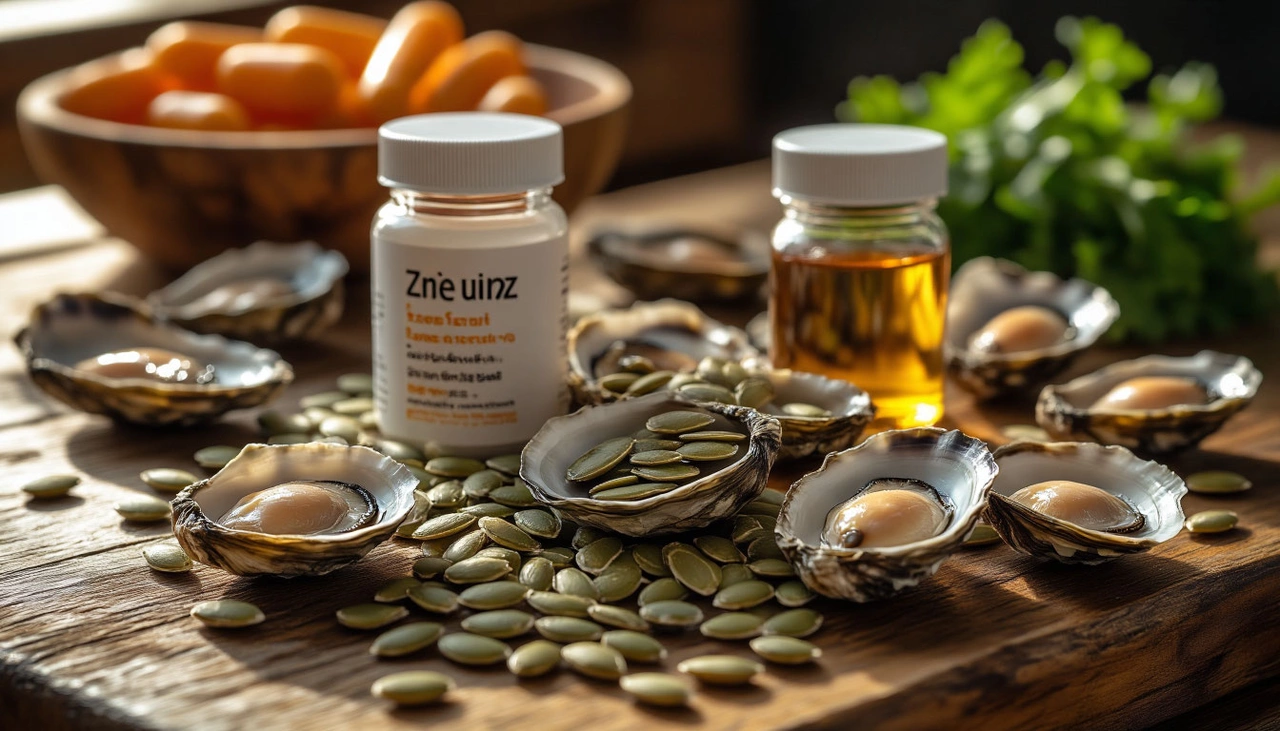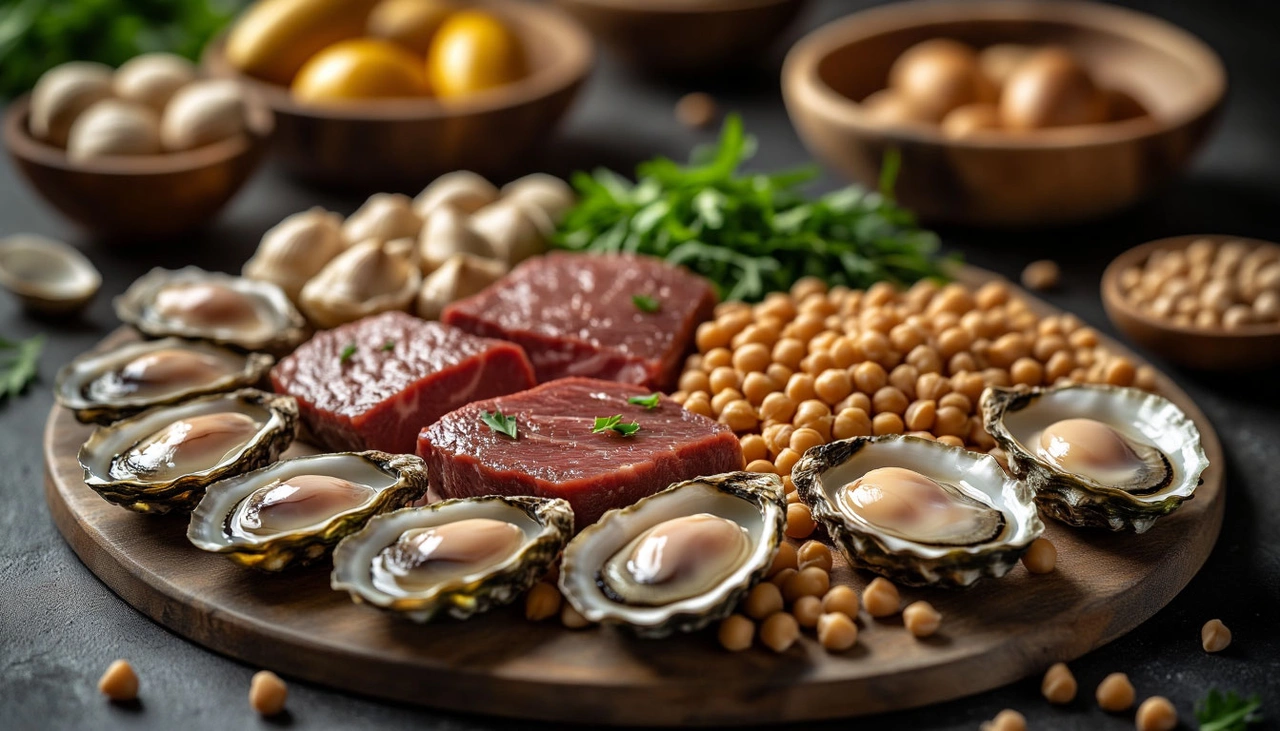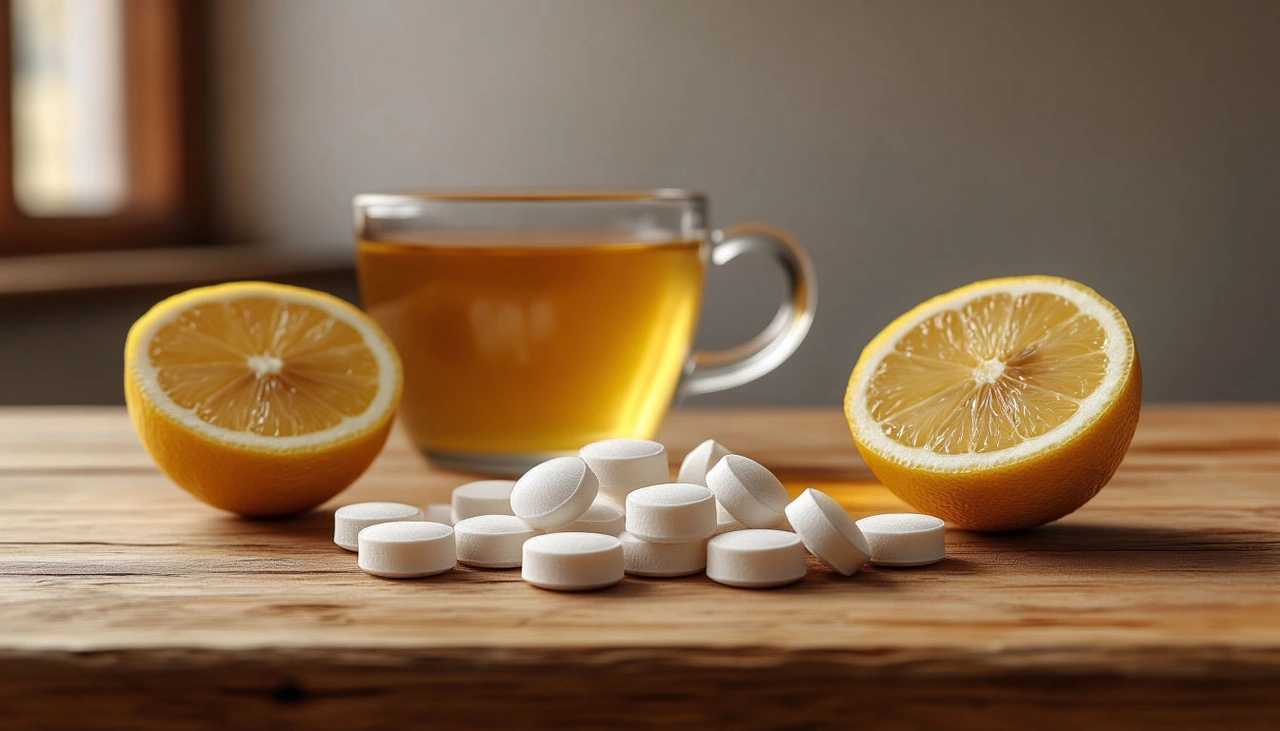🧪 Why Zinc Matters: The Underrated Mineral Every Woman Needs
🧬 What Is Zinc and Why Is It Essential?
You’ve probably heard plenty about calcium, magnesium, and iron, but zinc rarely gets the spotlight it deserves. Yet this trace mineral — needed in tiny amounts — is responsible for over 300 enzymatic reactions in the human body. That makes it absolutely crucial to health, even though we don’t need large quantities of it.
Zinc supports everything from cell growth and immune defense to DNA synthesis and wound healing. During life stages involving rapid growth — such as childhood, adolescence, and pregnancy — the demand for zinc increases, making it all the more vital to meet your needs.

🛡️ Zinc’s Immune Power: Your First Line of Defense
One of zinc’s most celebrated roles is in immune system regulation. It supports the development and function of critical immune cells, such as T-cells and B-cells, which protect your body against pathogens.
Zinc also acts as an antioxidant, neutralizing harmful free radicals and reducing inflammation. A deficiency in zinc can lead to weakened immune responses, making you more susceptible to colds, flu, and even prolonged healing times.
💆♀️ Skin Deep: Zinc for Healthy Skin and Hair
Zinc is a quiet hero in the world of skincare. It helps regulate sebum production — the skin’s natural oil — and combats inflammation, making it beneficial for people struggling with acne or oily skin.
Additionally, zinc contributes to collagen production, supporting firm, smooth, and youthful skin. Since skin is the body’s largest organ and first barrier against infection, maintaining its health is also an indirect boost to your immune system.
And for your hair? Zinc supports follicle health and can help reduce hair thinning and breakage.

🍽️ Food Sources of Zinc: What to Add to Your Plate
Luckily, zinc is present in many everyday foods. The richest sources include:
- Shellfish (especially oysters)
- Red meat
- Poultry
- Legumes (like lentils and chickpeas)
- Whole grains (such as oats and quinoa)
- Nuts and seeds (pumpkin seeds are especially high in zinc)
It’s important to note, though, that some plant-based foods contain phytates — compounds that bind to zinc and reduce its absorption. This means vegetarians and vegans might need to pay extra attention to their zinc intake. In cases where your diet falls short, zinc supplements are a safe and effective way to meet your needs.

💊 Choosing the Right Zinc Supplement: What's the Difference?
If you’ve ever browsed zinc supplements, you may have felt overwhelmed by the variety. Let’s break down the most popular forms:
🧪 Zinc Chelate
This is a form where zinc is bound to amino acids, improving its absorption and tolerability. Chelated zinc is often easier on the stomach and absorbed more efficiently by the body. It’s ideal for general support of skin, immunity, and antioxidant defense.
🧬 Zinc Picolinate
This version binds zinc with picolinic acid, a substance naturally produced from the amino acid tryptophan. Known for its high bioavailability, zinc picolinate is ideal for people looking to boost their absorption levels significantly. Each dose usually provides about 22 mg of elemental zinc.
🍋 Flavo-Zinc (Citrate + Gluconate)
Flavo-Zinc combines zinc citrate and gluconate, two forms known for their gentle effect on the stomach and good absorption. Often found in lozenge form, it’s designed for a targeted antibacterial effect in the mouth and throat — helpful during colds or sore throats.

🌟 Final Thoughts: Don’t Overlook Zinc
Zinc is often overshadowed by more “popular” minerals, but its role in supporting immunity, skin, hair, and overall cellular health is undeniable. Whether through a balanced diet or the right supplement, ensuring you meet your daily zinc needs is one of the smartest investments in your health. Pro tip: Adult women typically need about 8-12 mg of zinc daily. Always consult your doctor before starting any supplement regimen, especially during pregnancy or if you have underlying health concerns.
Close